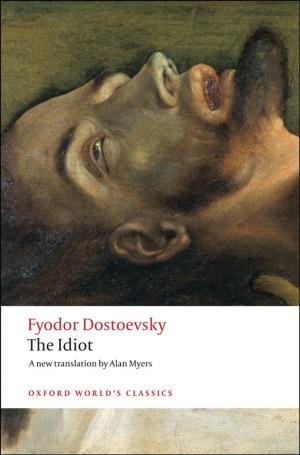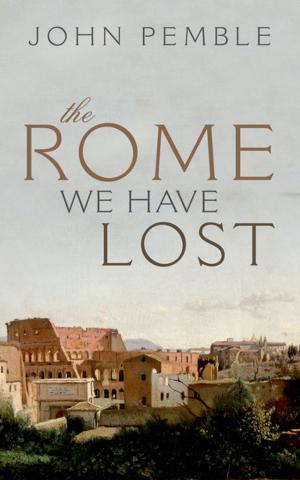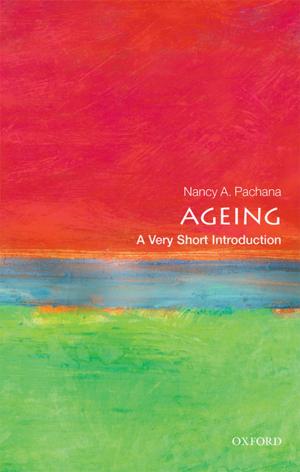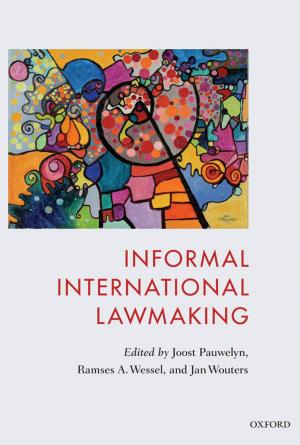Shakespeare and Literary Theory
Fiction & Literature, Literary Theory & Criticism, British, Drama, Nonfiction, Entertainment| Author: | Jonathan Gil Harris | ISBN: | 9780191614415 |
| Publisher: | OUP Oxford | Publication: | August 19, 2010 |
| Imprint: | OUP Oxford | Language: | English |
| Author: | Jonathan Gil Harris |
| ISBN: | 9780191614415 |
| Publisher: | OUP Oxford |
| Publication: | August 19, 2010 |
| Imprint: | OUP Oxford |
| Language: | English |
OXFORD SHAKESPEARE TOPICS General Editors: Peter Holland and Stanley Wells Oxford Shakespeare Topics provide students and teachers with short books on important aspects of Shakespeare criticism and scholarship. Each book is written by an authority in its field, and combines accessible style with original discussion of its subject. How is it that the British literary critic Terry Eagleton can say that 'it is difficult to read Shakespeare without feeling that he was almost certainly familiar with the writings of Hegel, Marx, Nietzsche, Freud, Wittgenstein and Derrida', or that the Slovenian psychoanalytic theorist Slavoj Žižek can observe that 'Shakespeare without doubt had read Lacan'? Shakespeare and Literary Theory argues that literary theory is less an external set of ideas anachronistically imposed on Shakespeare's texts than a mode - or several modes - of critical reflection inspired by, and emerging from, his writing. These modes together constitute what we might call 'Shakespearian theory': theory that is not just about Shakespeare but also derives its energy from Shakespeare. To name just a few examples: Karl Marx was an avid reader of Shakespeare and used Timon of Athens to illustrate aspects of his economic theory; psychoanalytic theorists from Sigmund Freud to Jacques Lacan have explained some of their most axiomatic positions with reference to Hamlet; Michel Foucault's early theoretical writing on dreams and madness returns repeatedly to Macbeth; Jacques Derrida's deconstructive philosophy is articulated in dialogue with Shakespeare's plays, including Romeo and Juliet; French feminism's best-known essay is Hélène Cixous's meditation on Antony and Cleopatra; certain strands of queer theory derive their impetus from Eve Kosofsky Sedgwick's reading of the Sonnets; Gilles Deleuze alights on Richard III as an exemplary instance of his theory of the war machine; and postcolonial theory owes a large debt to Aimé Césaire's revision of The Tempest. By reading what theoretical movements from formalism and structuralism to cultural materialism and actor-network theory have had to say about and in concert with Shakespeare, we can begin to get a sense of how much the DNA of contemporary literary theory contains a startling abundance of chromosomes - concepts, preoccupations, ways of using language - that are of Shakespearian provenance.
OXFORD SHAKESPEARE TOPICS General Editors: Peter Holland and Stanley Wells Oxford Shakespeare Topics provide students and teachers with short books on important aspects of Shakespeare criticism and scholarship. Each book is written by an authority in its field, and combines accessible style with original discussion of its subject. How is it that the British literary critic Terry Eagleton can say that 'it is difficult to read Shakespeare without feeling that he was almost certainly familiar with the writings of Hegel, Marx, Nietzsche, Freud, Wittgenstein and Derrida', or that the Slovenian psychoanalytic theorist Slavoj Žižek can observe that 'Shakespeare without doubt had read Lacan'? Shakespeare and Literary Theory argues that literary theory is less an external set of ideas anachronistically imposed on Shakespeare's texts than a mode - or several modes - of critical reflection inspired by, and emerging from, his writing. These modes together constitute what we might call 'Shakespearian theory': theory that is not just about Shakespeare but also derives its energy from Shakespeare. To name just a few examples: Karl Marx was an avid reader of Shakespeare and used Timon of Athens to illustrate aspects of his economic theory; psychoanalytic theorists from Sigmund Freud to Jacques Lacan have explained some of their most axiomatic positions with reference to Hamlet; Michel Foucault's early theoretical writing on dreams and madness returns repeatedly to Macbeth; Jacques Derrida's deconstructive philosophy is articulated in dialogue with Shakespeare's plays, including Romeo and Juliet; French feminism's best-known essay is Hélène Cixous's meditation on Antony and Cleopatra; certain strands of queer theory derive their impetus from Eve Kosofsky Sedgwick's reading of the Sonnets; Gilles Deleuze alights on Richard III as an exemplary instance of his theory of the war machine; and postcolonial theory owes a large debt to Aimé Césaire's revision of The Tempest. By reading what theoretical movements from formalism and structuralism to cultural materialism and actor-network theory have had to say about and in concert with Shakespeare, we can begin to get a sense of how much the DNA of contemporary literary theory contains a startling abundance of chromosomes - concepts, preoccupations, ways of using language - that are of Shakespearian provenance.















